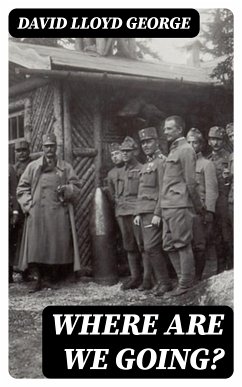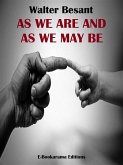In "Where Are We Going?", David Lloyd George presents a compelling exploration of the socio-political landscape of post-World War I Britain. Written in a rhetorical style that combines passionate oratory with incisive analysis, the book addresses the pressing questions of national identity, economic recovery, and social justice. Lloyd George's poignant reflections on the failures of wartime consensus and the disillusionment of the masses resonate deeply within the context of a rapidly changing Britain, challenged by the specter of economic hardship and the thirst for reform. His candid prose and visionary outlook capture the urgency for a new direction, making it a seminal text in the realm of political literature. David Lloyd George, a prominent statesman and the United Kingdom's Prime Minister from 1916 to 1922, was acutely aware of the complexities facing his country during a time of great tumult. His experiences in reforming social policies, alongside the legacy of the war, served as a backdrop for this work. Lloyd George's unwavering commitment to the welfare of the British people and his innovative vision for a just society are reflected in this thought-provoking manifesto. This book is an essential read for anyone seeking to understand the historical context of early 20th-century Britain and the social challenges that continue to echo today. Lloyd George's incisive commentary not only informs the past but also inspires contemporary discussions on governance and civic responsibility.
Dieser Download kann aus rechtlichen Gründen nur mit Rechnungsadresse in A, B, BG, CY, CZ, D, DK, EW, FIN, F, GR, H, IRL, I, LT, L, LR, M, NL, PL, P, R, S, SLO, SK ausgeliefert werden.









